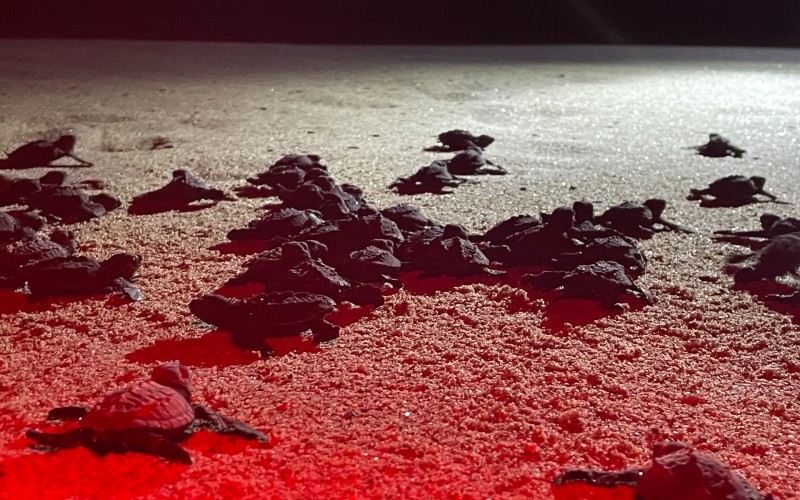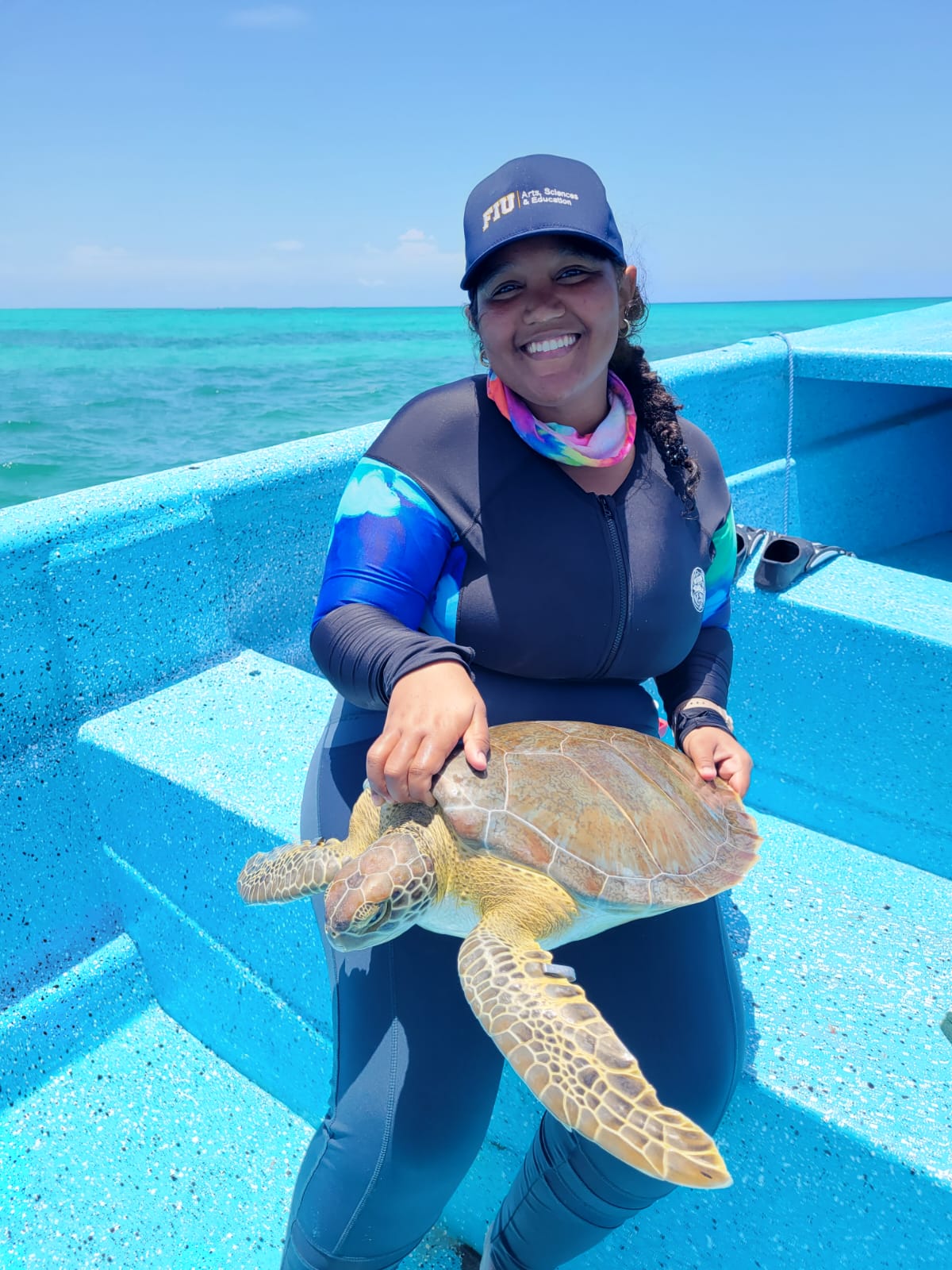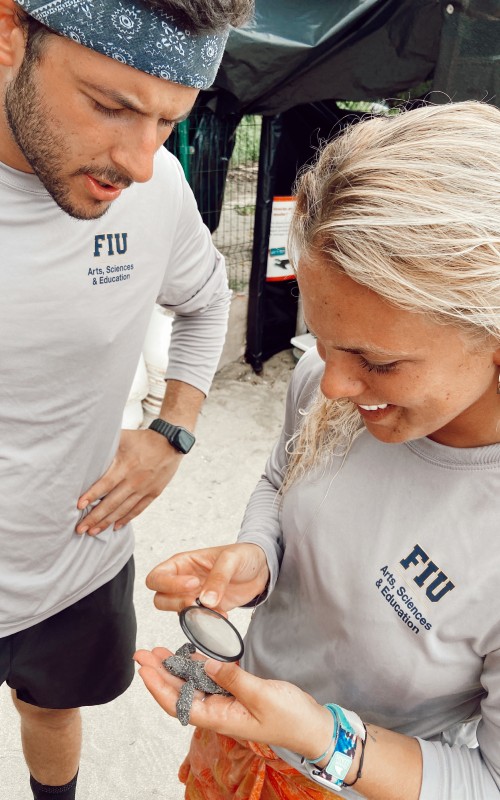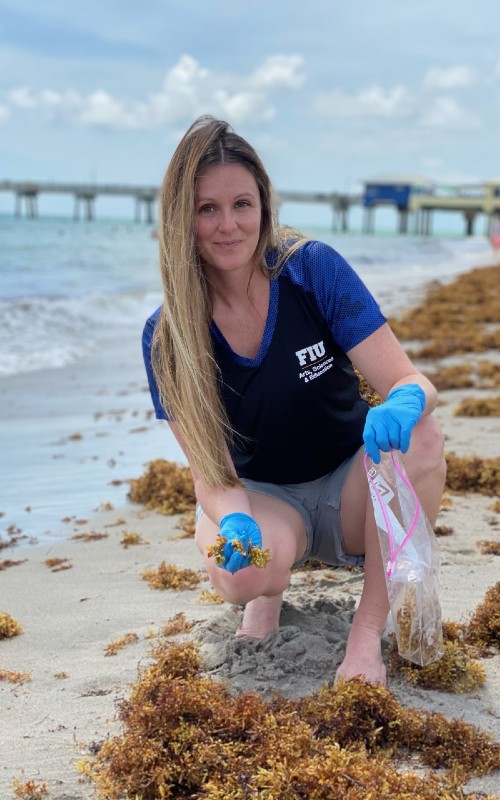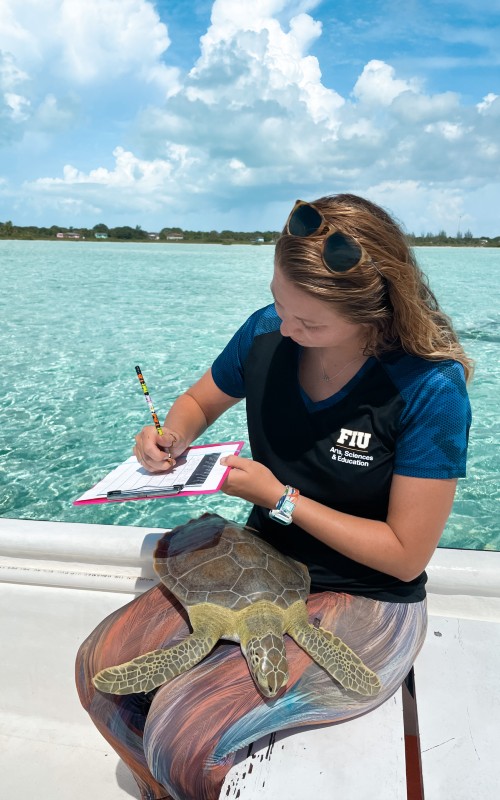As part of two distinct awards, the National Save the Sea Turtle Foundation (NSTSTF) is building FIU’s capacity to support research related to the conservation of sea turtles. The two awards include:
- NSTSTF Undergraduate Scholarship
- NSTSTF Sea Turtle Rehabilitation and Outreach Award.
These awards are only available for current undergraduate students.
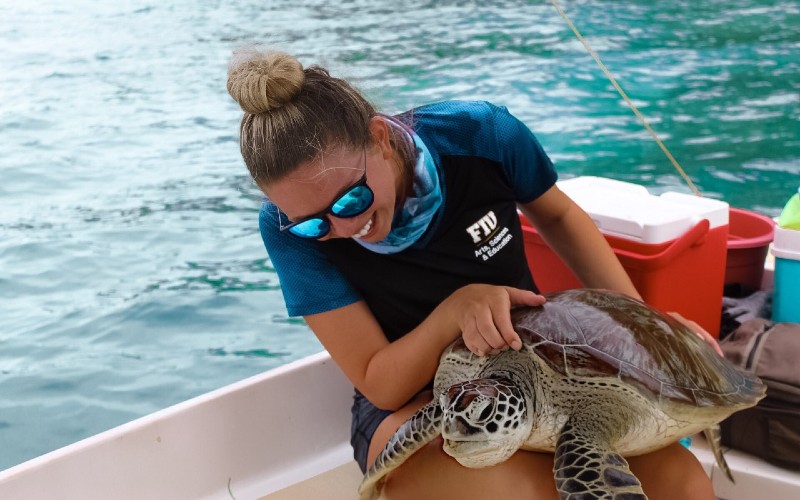
Award Information
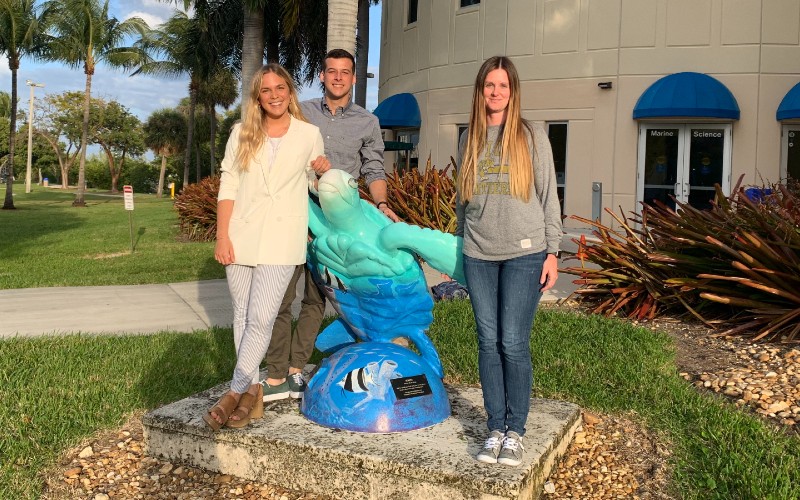 The NSTSTF Undergraduate Scholarship Award will provide up to $8,000 to two undergraduate students who are performing research relevant to the conservation of sea turtles. These funds can be applied toward research-related travel, conference travel, materials and supplies, and student tuition and fees.
The NSTSTF Undergraduate Scholarship Award will provide up to $8,000 to two undergraduate students who are performing research relevant to the conservation of sea turtles. These funds can be applied toward research-related travel, conference travel, materials and supplies, and student tuition and fees.
The application package for the NSTSTF Undergraduate Scholarship Award includes the following:
- A 500-word personal statement that includes how the chosen opportunity (see list below) will help you meet your career goals, aspirations, and research interests
- CV or resume
- 2 letters of recommendation. Must speak to skills related to research and reliability / character.
- A copy of the student’s unofficial transcript
Notes:
1) Students who choose to create their own internship or research project have additional components that need to be included in their applications. See more information about these additional requirements in the 'Create an Independent Research Project' section below.
2) Students also have the option of obtaining academic credit for their participation in the program. If you are interested in obtaining credit, please indicate this in your application.
Application packages must be formatted into one PDF and emailed to Catherine Guinovart, Coordinator of Administrative Services for the Coastlines and Oceans Division in the Institute of Environment at cguinova@fiu.edu and Elizabeth Whitman, Assistant Teaching Professor, at ewhitman@fiu.edu before April 1, 2025.
If a student is applying for the NSTSTF Undergraduate Scholarship Award the subject line of the email should be “NSTSTF Scholarship Student’s Last Name”. The letters of recommendation for the scholarship should be emailed to cguinova@fiu.edu and ewhitman@fiu.edu with the subject line “LOR NSTSTF Scholarship Student’s Last Name".
